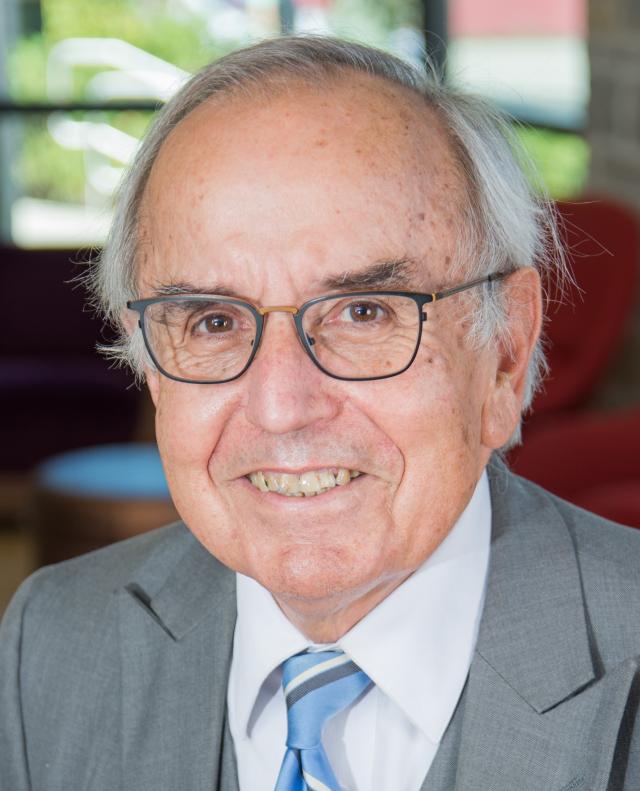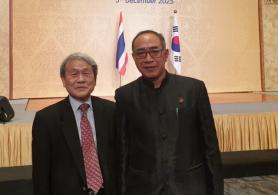
KENOSHA -- The President of the United States travels to Texas to mitigate factional strife in his Democratic Party, and on November 22, 1963, is gunned down on a Dallas street. Two days later, alleged assassin Lee Harvey Oswald is shot by fringe hustler Jack Ruby.
JFK’s majestic November 25 funeral, planned in detail by wife Jacqueline, provides no closure. The American government has been fundamentally shaken. Oswald’s televised murder precludes a trial and fuels continuing conspiracy theories.
Fascination with President John F. Kennedy, and his wife, continues. In 2013, there were floods of books, articles, and commentaries marking the half-century since his death.
Kennedy’s legacy is complex, including highly publicized shortcomings. CBS commentator Eric Sevareid noted his principal legacy might be “an attitude,” a spirit that all things are possible for Americans if we only have the dedication and will.
In fact, JFK had major achievements. These include the 1963 nuclear test-ban treaty, cutting barriers to trade, the Peace Corps, and the ambitious expansion of space exploration. Nonetheless, Sevareid was perceptive in emphasizing the emotional dimensions of political leadership.
The early disastrous invasion of Cuba at the Bay of Pigs undercut Kennedy and provided Soviet Premier Nikita Khrushchev strong incentive to deploy nuclear missiles on the island the following year. Intense, steadily expanding U.S. efforts to kill Fidel Castro further spurred Moscow.
This led to the Cuban Missile Crisis of October 1962. President Kennedy, a World War II combat veteran, resisted powerful pressure to invade Cuba. The missiles were removed following a blockade and overt invasion preparations, combined with a secret Cuba-Turkey missile trade. Kennedy’s restraint and imagination averted nuclear Armageddon.
In the aftermath of the missile crisis, Kennedy and Soviet leader Nikita Khrushchev achieved a treaty banning nuclear tests in the atmosphere, a breakthrough. The Senate ratified the treaty with a bipartisan vote of 80-19. JFK had other successes with Congress, including negotiation authority key to the 1967 Kennedy Round trade agreement, and subsequent Tokyo and Uruguay accords.
Two prominent domestic issues were civil rights and organized crime, the latter an obsession of driven Attorney General Robert F. Kennedy. JFK was cautious on race relations, addressing the subject actively only when pressed by a massive march on Washington.
RFK was relentless in pursuit of the mafia, while simultaneously gangsters and mercenaries were recruited to kill Castro. Dallas ended both efforts. Regarding organized crime, six years passed before the Nixon administration re-energized prosecution.
People around Robert Kennedy were puzzled by his marked disinterest in a possible assassination conspiracy. In hindsight, RFK no doubt avoided that dark tangled path because he might come face to face with himself.
Senator John Kennedy’s book “Profiles in Courage,” about U.S. Senators who put principle above political expediency, received the Pulitzer Prize. While critics cracked President Kennedy should show less profile and more courage, in fact, he demonstrated exceptional personal strength.
Professor Herbert Parmet has documented extraordinary health problems that plagued JFK from birth. He nearly died in infancy, and received Catholic last rites at least three times. Yet he managed to enlist in the U.S. Navy, and then volunteered for hazardous PT boat duty, where he demonstrated truly exceptional courage.
Sevareid’s observation applies tangibly to the American space program. The commitment to sending astronauts to the Moon (and returning them safely, Kennedy always carefully added) resulted in dramatic success. Associated innovations include miniaturization. Today’s computers, cell phones and a range of other products reflect this.
To the consternation of liberals, Kennedy made the Communications Satellite Corporation private, facilitating today’s strong role of private business in space exploration.
In the mid-1970s, revelations about JFK’s personal life along with the Castro plots sparked controversy. Understanding human complexity is part of growing up, and the Cold War involved ruthless actions by both sides.
We live in an ugly time. Public obsession with sex and sleaze joins with constant efforts to denigrate and demean public figures. Direct positive testimony can be an antidote.
Harvard Professor John Kenneth Galbraith, JFK’s successful ambassador to India, was an occasional visitor to the Chicago Council on Foreign Relations, my employer for two decades.
In response to a question about President Kennedy, the usually aloof Galbraith suddenly became animated, and friendly. He declared that “Jack Kennedy” was the most curious, questioning person he ever met.
Kennedy made you think.
Copyright ⓒ Aju Press All rights reserved.




